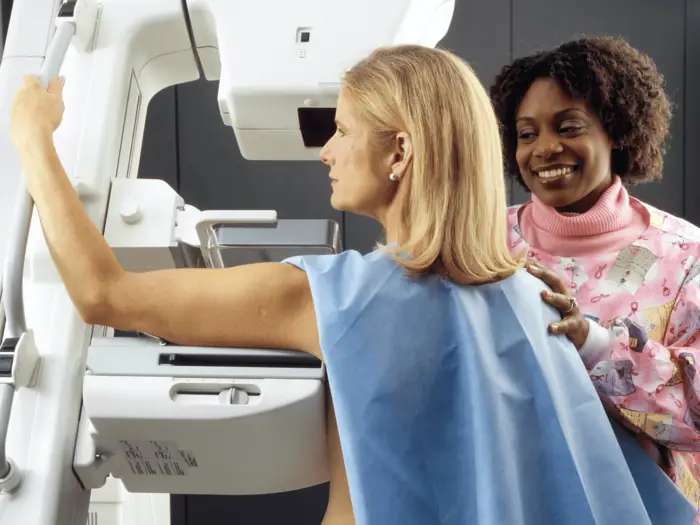Radiology Technician: Everything You Need to Know

The medical industry needs the field of radiology since it helps with disease diagnosis and treatment by utilizing medical imaging technologies. As a result, they are in charge of operating and maintaining the equipment that produces these images, radiology technicians are crucial to this sector of the economy. This post is for you if you are considering a career as a radiology technician. Everything you need to know about this profession, including the educational and training requirements, duties, and future employment prospects, will be covered in this thorough book.
In This Article
What is a Radiology Technician?
Healthcare professionals that specialize in creating medical images of patients using X-ray, computed tomography (CT), magnetic resonance imaging (MRI), and other imaging equipment are known as radiology technicians, radiologic technologists, or radiographers. To assist in the diagnosis and treatment of a variety of medical disorders, they collaborate closely with doctors and other healthcare experts.
Education and Training Requirements
To become a radiology technician, you will need to complete a formal education and training program. Most programs take about two years to complete and result in an associate’s degree. Some programs may offer a certificate or a bachelor’s degree as well. Coursework typically covers anatomy, physiology, patient care, medical ethics, radiation physics, and medical imaging.
Licensure and Certification
To work as a radiology technician, you must receive a license or certification after finishing your school and training program. State-specific standards for certification and licensure may vary, but the majority of them demand that radiology technicians pass an exam administered by the American Registry of Radiologic Technologists (ARRT) or a comparable body. If you want to get ready for the ARRT exam be sure to utilize practice tests.
Job Responsibilities
Radiology technicians have a variety of job responsibilities, including:
Preparing Patients for Procedures
Patients must be made ready for imaging operations by radiology technicians. This could entail describing the operation to the patient, responding to inquiries, and making sure the patient is at ease and comfortable.
Operating and Maintaining Imaging Equipment
X-ray machines, CT scanners, and MRI machines are just a few of the imaging devices that radiology technicians run and maintain. They are in charge of making sure the tools are in good working order and that pictures are made accurately and quickly.
Ensuring Radiation Safety
Radiology technicians are responsible for ensuring the safety of patients and other healthcare professionals by minimizing their exposure to radiation. They use lead aprons, shields, and other protective equipment to reduce their exposure to radiation as well.
Record-Keeping and Data Management
The upkeep of correct records of patient operations and images is the duty of radiology technicians. Afterward, they might be in charge of managing patient data, which might involve saving and retrieving pictures and other kinds of medical data.
Career Prospects
The demand for radiology technicians is expected to grow in the coming years, as the population ages and the need for medical imaging increases. According to the Bureau of Labor Statistics, employment of radiologic technologists is projected to grow 9 percent from 2020 to 2030, which is faster than the average for all occupations.
Advancement Opportunities
Opportunities for career progression for radiology technicians include becoming a lead technologist or a chief technologist. Additionally, they could decide to focus in a specific branch of radiology, like CT or MRI.
Salary and Benefits
Radiology technicians’ pay and benefits can differ depending on their experience, job, and location. As of May 2023, the median annual salary for radiologic technologists is $64,800, according to the Bureau of Labor Statistics. Health insurance, retirement programs, and paid time off are some examples of benefits.
Job Outlook
The future looks bright for radiology technologists, with significant job growth anticipated over the next few years. New employment possibilities in this industry are anticipated as a result of the rising demand for medical imaging services and the retirement of experienced technicians.
Challenges and Opportunities
The potential health dangers of radiation exposure, the requirement for long hours, and the physical demands of the job are just a few of the difficulties faced by radiology technicians in their line of work. The gratification of aiding in the diagnosis and treatment of medical disorders is one of the numerous opportunities for personal and professional growth that this career also provides.
Conclusion
Radiology technologists use medical imaging technologies to assist detect and treat ailments, playing an important role in the healthcare sector. Understanding the educational and training requirements, job responsibilities, career prospects, obstacles, and opportunities related to this sector is crucial if you’re thinking about working in it. You can have a fulfilling career as a radiology technician if you receive the appropriate education and training.
FAQs
What is the difference between a radiology technician and a radiologist?
- A radiology technician is responsible for operating and maintaining imaging equipment. A radiologist is a physician who interprets medical images to diagnose and treat medical conditions.
How long does it take to become a radiology technician?
- Most radiology technician programs take about two years to complete and result in an associate’s degree.
What kind of imaging equipment do radiology technicians use?
- Radiology technicians use a variety of imaging equipment, including X-ray machines, CT scanners, and MRI machines.
What is the job outlook for radiology technicians?
- The job outlook for radiology technicians is positive, with solid job growth expected in the coming years.
Salary and benefits for radiology technicians?
- The salary and benefits for radiology technicians vary depending on experience, location, and employer. According to the Bureau of Labor Statistics, the median annual wage for radiologic technologists was $63,710 as of May 2020.
Categorised in: Schools
